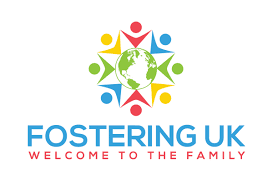Foster Children Friendship: Nurturing Bonds and Creating Lifelong Connections
Foster children need friendship because it gives them emotional support, a sense of belonging, and enduring ties. Sincere connections are even more crucial for foster children because they frequently experience unique difficulties and transitions. In this article, we'll look at the importance of friendships among foster kids, their advantages, and the ways foster parents and other carers can encourage them. Foster children's friendships have the capability to change lives in a variety of ways, including trust-building and socialisation as well as resilience-building and creating a sense of security.
- Building Trust and Security: Friendships provide foster children with a secure environment where they can develop trust and confidence. Foster children frequently feel uneasy and unstable because of their fluctuating living circumstances. Genuine friendships give foster children a solid basis and a feeling of belonging, enabling them to express themselves authentically and form relationships of trust with their peers.
- Emotional Support and Understanding: For foster children, friendships offer crucial emotional support and comprehension. Friends who have gone through comparable struggles can be a source of support and empathy. Foster Kids can talk to friends who actually understand their path about their experiences, anxieties, and dreams. Foster children who have these bonds have a safe place to express their emotions and learn coping mechanisms.
- Socialization and Integration: Friendships are essential for helping kids socialise and fit in at school and in their communities. Having friends lessens feelings of isolation in foster children by making them feel connected and welcomed. Friends can act as advocates by exposing foster children to new activities, interests, and social groups. This fosters a feeling of normalcy and aids in the development of their social skills.
- Developing Resilience and Self-Esteem: In Foster Kids, friendships help foster children build resilience and self-esteem. Foster children get the ability to overcome obstacles, establish resilience, and master problem-solving techniques through supportive partnerships. Foster children who develop strong friendships have acceptance, recognition, and the chance to improve the lives of others, which can help them feel more confident.
- Nurturing Stability and Continuity: In the midst of shifting circumstances, friendships give foster children a sense of stability and continuity. Maintaining friendships can provide a sense of familiarity and comfort since Foster Kids may move between numerous foster homes or schools. In foster children's life, long-lasting friendships can be a constant presence and a source of stability in tumultuous times.
- Supporting Foster Children's Friendships: 1. Foster parents and other carers are crucial in fostering and strengthening the friendships of Foster Kids. People can:
Conclusion
Conclusion
Genuine connections offer stability, understanding, and support. Foster parents and other carers are essential in fostering and preserving these friendships and in establishing a setting that encourages resiliency, a sense of belonging, and enduring relationships. We may contribute to the general well-being of foster children and assist them in forming the relationships and skills required for a successful future by acknowledging the value of their friendships.




Comments
Post a Comment